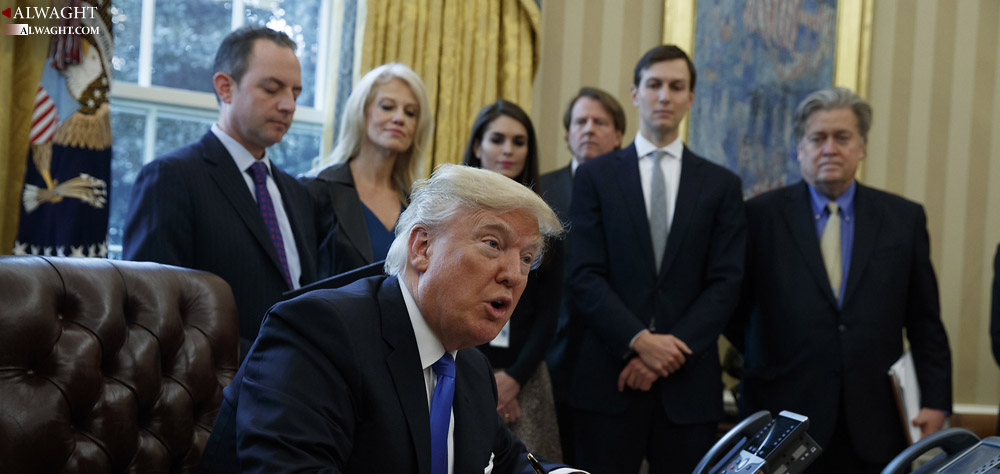Alwaght- Before the current president of the United States Donald Trump’s victory in the presidential election, it seemed that there was a consensus between the American politicians and political elites on the way of dealing with Russia. In their viewpoint, President Vladimir Putin of Russia is an authoritarian leader precluding the Western democracy from rising also in Russia, cracking down on the media, manipulating the elections, and most importantly embarking on an aggressive plan in the foreign policy. They argue that this foreign policy spirit motivated him to intervene in the neighboring Georgia and then the eastern Ukraine, annexing part of the Ukrainian territory– the Crimea Peninsula– to the Russian Federation.
Another point of Putin's policy is marked by the Russian presence in the West Asia region. The Russian leader stymied many of the Western schemes in the crisis-hit Syria, and at the end of the road ventured on a peace process for Syria without an influential and highlighted role of the US. So with this record and performance of the Russian president in sight, it is not unexpected that the American politicians unanimously lash out at Russia. This issue is by no means a sole Republican or Democratic case. Before Trump administration's coming to the power, the White House and the Congress viewed Russia with one accord.
But the 2016 American presidential race went in a way that a crack appeared to emerge in this bipartisan anti-Russian unanimity as Trump and his team of advisors insisted on the point that without obtaining the Russians' content, it was unlikely for Washington to find settlements for many global issues, particularly the dangers of the ISIS terrorist group. They pressed that the necessity now dictates that Washington should have a brand-new vision on the type of its relation with Moscow. But this approach did not grow out of a consensus developing inside the American society. Actually, the advocates of a warming up to Russia in the new administration even failed to achieve harmony inside the Republican Party. Having in mind that Trump’s administration does not see itself tightly bound to the old structures of the American governing system or even the own Republican Party, it has done some works so far that are labeled by the critics as “unilateral” and so jeopardizing the American national security. As the Trump’s government tried to take a new approach to Russia— at least ostensibly and with use of a different rhetoric–, the Congress holders took measures against such Trump’s policies, to a degree that leading Republicans and senators like John McCain, who heads the very weighty Senate's Committee on Armed Services, toughly attacked the government, warning that cozying up to Moscow while President Putin has not thrown away his past behaviors could risk the American national interests.
In such conditions, the claims about Russian interventions in the American domestic affairs including the presidential election have widened the divisions, to the extent that some even disparaged Trump, accusing him of pursuing Putin’s policies inside the US. Aside from Hillary Clinton accusing Trump of being “puppet of Vladimir Putin and Russia” in one of her television debates, inside the Republican Party there grew concerns about the degree of cooperation and behind-the-scenes contacts between Trump’s security team and the Russians. The culmination of such struggles was resignation of Michael Flynn, the US president’s national security advisor.
These issues are expressive of the fact that differences with Russia are deeper than what Trump has been thinking. He thought that with some diplomatic work it was feasible to break the ice. But what is certain is that Trump after a month of his presidency has not succeeded in persuading a major part of the country’s politicians, at least inside his Republican Party, with the aim of paving the way for reconciliation with Russia. So it looks quite unlikely that he can press ahead with this efforts without advocacy from the Congress. Because some sanctions that are imposed on Russian are decisions made by the Congress and Trump’s insistence on continuing this course could claim further Flynn-style victims from his cabinet.



























